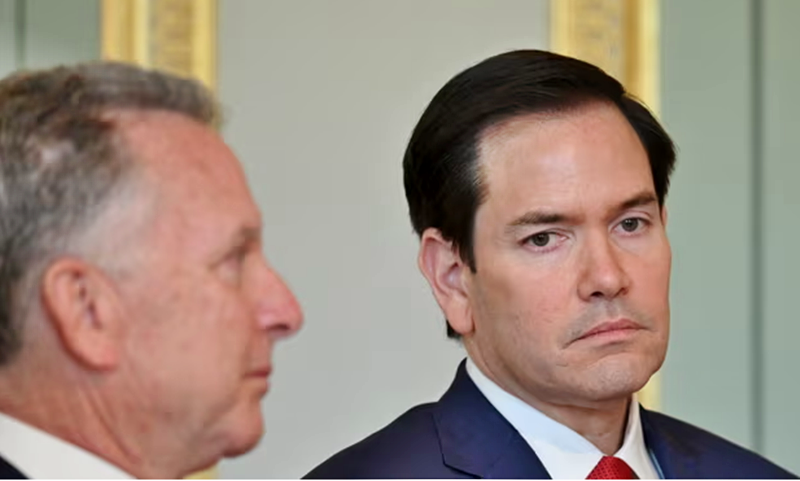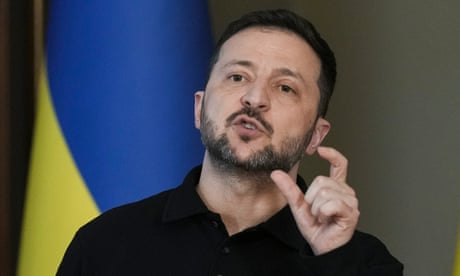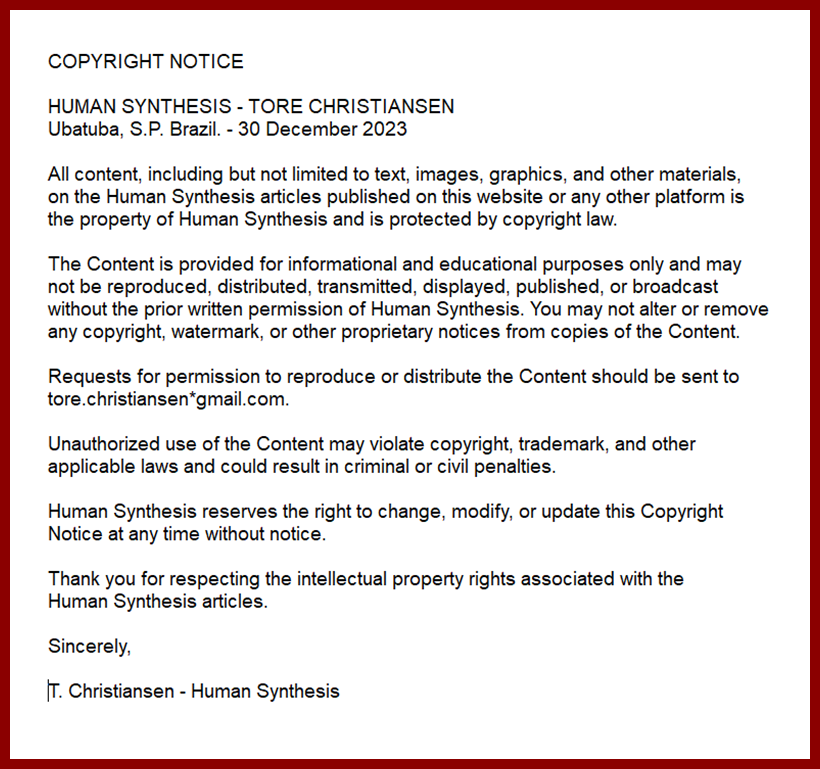US ready to abandon Ukraine peace deal if there is no progress, says Marco Rubio

By Guardian-Luke Harding in Kyiv-Fri 18 Apr 2025 10.23 BST
Secretary of state threatens to pull plug ‘within days’, as Kyiv says it has signed mineral deal memorandum. The US will abandon its efforts “within days” to broker a peace agreement between Russia and Ukraine unless there are clear signs a settlement can be reached, the US secretary of state, Marco Rubio, has said, as Kyiv says it has signed a memorandum with the US over a controversial minerals deal.
Speaking in Paris on Friday after meeting European and Ukrainian leaders, Rubio said Donald Trump was still interested in a deal. But he added that the US president had many other priorities around the world and was willing to move on unless there were signs of progress.
VIDEO
Rubio’s comments are the clearest signal yet that the White House is ready to walk away from its diplomatic attempts to negotiate an end to the war. Last month Ukraine agreed unconditionally to a US proposal for a 30-day ceasefire.
The Kremlin, however, has rejected the plan. Instead, it has launched a fresh military push across the 600-mile (1,000km) frontline and stepped up its air attacks on Ukrainian civilians and infrastructure. On Sunday it bombed the city of Sumy, killing 35 people and injuring 117.
Since Trump returned to the White House in January he has piled pressure on Ukraine, stopping most US military assistance and temporarily cutting off intelligence sharing. This week he falsely blamed Volodymyr Zelenskyy and Joe Biden for “starting” the war.
In contrast, Trump has refused to criticise Vladimir Putin or to impose sanctions on or punish Moscow. Senior US officials – including the special envoy Steve Witkoff, who held talks last week with Putin in St Petersburg – have instead parroted Kremlin talking points.
Meanwhile, significant details of the minerals deal remain unclear, including whether Kyiv has agreed to a White House demand that it “pays back” the cost of earlier military assistance.
Zelenskyy was poised in February to sign a framework agreement over a wide-ranging economic partnership. It was derailed after his disastrous encounter with Trump and the US vice-president, JD Vance, in the Oval Office.
Since then negotiations have continued. Overnight, Ukraine’s first deputy prime minister, Yuliia Svyrydenko, said a memorandum had been finalised. It paved the way for the setting up of an investment fund for the reconstruction of Ukraine, she indicated.
“We are happy to announce the signing with our American partners,” she said. Speaking to reporters in the White House, Trump said a deal could be signed next Thursday.
The US treasury secretary, Scott Bessent, added: “We’re still working on the details.” He said the latest version ran to 80 pages and was “substantially what we’d agree on previously”. “That’s what we will be signing,” he said.
According to the latest draft, seen by the Guardian, Ukraine acknowledges the “significant material and financial support” Kyiv has received from the US since Russia’s 2022 invasion and the desire from both countries for a “lasting peace”.
It says Ukraine’s prime minister, Denys Shmyhal, will visit Washington next week to hold final “technical talks” with Bessent. They are expected to complete discussions on a “reconstruction investment fund”, the memo adds.
The deal would need to be ratified by Ukraine’s parliament, Ukraine’s deputy minister of economy said on Friday.
Zelenskyy is keen to improve relations with the Trump administration. At the same time, he has so far rejected the White House’s demand that revenue from the new joint fund is used to cover the cost of weapons deliveries provided by the Biden administration.
Trump has previously said Ukraine “owes” the US $300bn (£226bn). Zelenskyy has pointed out this assistance was given as a grant, not as a loan, with Republicans and Democrats approving it in Congress. Any future partnership has to be based on “parity”, and should benefit both countries, he says.
The deal may help US weapons manufacturers who are facing a critical shortfall of key rare-earth minerals imported from China. Beijing has restricted their export in response to Trump’s escalating trade war.
Volodymyr Landa, a senior economist with the Centre for Economic Strategy thinktank in Kyiv, said the deal had gone through “multiple iterations”. He added: “It’s hard to say what’s inside.”

Landa said he did not expect Kyiv to accept that previous “non-refundable military aid” was now “debt”. “That’s not only unfair and unrealistic, but may also negatively affect the full global financial system,” he said.
He continued: “If it suddenly turns out that countries and organisations can demand payments for aid given unconditionally in previous years, it will make recipients more cautious, and could reopen difficult issues from previous decades around the world.”
The latest negotiations came as Russia killed one person and injured at least 74 in a ballistic missile strike on a residential area in the city of Kharkiv, in the north-east of Ukraine. Five of the wounded were children.
Kharkiv’s mayor, Ihor Terekhov, said the Russians used ballistic missiles equipped with cluster munitions. “That is why the affected areas are so extensive,” he said. At least 20 blocks of flats, 30 houses and an educational institution were damaged.
On Palm Sunday Russia dropped two Iskander missiles in the city centre of Sumy. One of them hit a congress centre. The other exploded between two university buildings and next to a crowded bus and cars.
